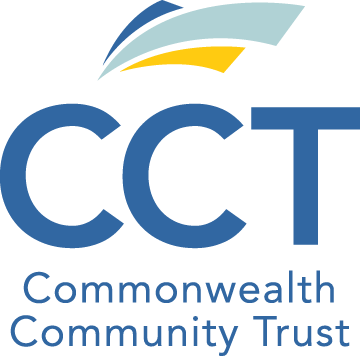Important Definitions
-
ABLE Act
The Stephen Beck, Jr. Achieving a Better Life Experience Act (ABLE Act) was enacted on December 19, 2014, allowing an individual with a disability to open a tax-free savings account without jeopardizing his or her Medicaid and SSI eligibility.
-
Advocate(s)
The Advocate(s) is an important part of the Beneficiary’s team and works closely with CCT staff. The Advocate(s) is authorized to make disbursement requests by signing and submitting the Payment Request Form to CCT and may receive confidential financial information about the Beneficiary’s sub-account.
The Advocate(s) is usually named by the Grantor(s) on the CCT Joinder Agreement (the legal document to join the trust) and may be the Beneficiary, a Guardian, Conservator, Power of Attorney, family member, case worker, friend, and/or someone who is trusted and familiar with the needs of the Beneficiary.
However, CCT has sole discretion to decide what distributions are in the Beneficiary’s best interest and permitted under the terms of the trust, as well as when to share information.
-
Disability, as described by the Social Security Administration (SSA)
For a child under the age of 18: The individual must have a medically determinable physical or mental impairment or combination of impairments that causes marked and severe functional limitations, and that can be expected to cause death or that has lasted or can be expected to last for a continuous period of not less than 12 months
For an adult 18 and older: The individual must be unable to engage in any substantial gainful activity (SGA) by reason of any medically determinable physical or mental impairment(s) which can be expected to result in death or which has lasted or can be expected to last for a continuous period of not less than 12 months.
CCT does not require that the Beneficiary meet the SSA’s definition of disability. It is required that the Beneficiary have a well-documented disability.
-
Irrevocable Trust
An irrevocable trust refers to any trust which cannot be undone or changed.
-
K-1
The K-1 is an attachment to the income tax return filed by an estate or trust (Form 1041) that reports a participant’s share of the trust’s or estate’s income, credits, and deductions.
-
Master Trust Agreement
The Master Trust Agreement is an arrangement where a trust company acting as the Trustee manages individual special needs trusts under the umbrella of a “master” or large trust fund.
-
Medicaid Payback
Medicaid payback applies only to the First-Party Pooled Special Needs Trust, the First-Party Pooled Special Needs Trust with Medicare Set-Aside, and the Military Survivor Benefit Plan First-Party Pooled Special Needs Trust. In order for a Beneficiary of a First-Party Pooled Special Needs Trust to qualify for means-tested public benefits, federal and state law require that upon the Beneficiary’s death, the state or states must be repaid from the trust the amount that the state or states’ Medicaid program has paid out on his or her behalf. It is important to note that the Third-Party Pooled Special Needs Trust does not require a Medicaid payback upon the Beneficiary’s death.
-
Medicare Set-Aside (MSA)
Following settlement of a worker’s compensation or liability lawsuit, federal law prohibits Medicare from paying for injury-related medical expenses or medications that an employer or health insurer is primarily responsible to pay. To ensure Medicare does not pay a medical expense or medication when it is not primarily responsible, federal regulations require that a portion of settlement funds be “set-aside” in an account to pay for future injury-related medical expenses and/or medications known as a Medicare Set-Aside (MSA).
-
National Defense Authorization Act of 2015
The National Defense Authorization Act of 2015 allows military members and retirees to direct annuity payments from their Survivor Benefit Plans to a special needs trust for the benefit of a dependent child with special needs. CCT offers the Military Survivor Benefit Plan First-Party Pooled Special Needs Trust.
-
First-Party Pooled Special Needs Trust
A First-Party PSNT is established with the Beneficiary’s own funds (self-funded) from a personal injury award, workers’ compensation claim, inheritance, savings, or Social Security back payment. For Beneficiaries receiving Medicaid, this type of trust is sometimes referred to as a Medicaid Payback trust. Remaining funds at the death of the Beneficiary are subject to reimbursement to state(s) for medical bills paid during the Beneficiary’s lifetime. This type of trust must be irrevocable by law.
-
Medicare Set-Aside (MSA) First-Party Pooled Special Needs Trust (PSNT)
An MSA First-Party PSNT is established with a portion of the settlement from a worker’s compensation or liability lawsuit with an MSA nested inside a First-Party PSNT. Federal law prohibits Medicare from paying for injury-related medical expenses or for medications that an employer or health insurer is primarily responsible to pay. To ensure Medicare does not pay a medical expense or for medication when it is not primarily responsible, federal regulations direct that a portion of settlement funds be “set aside” in an account, known as a Medicare Set-Aside, to pay for future injury-related medical expense and/or medications.
-
Pooled Trust
A Pooled Trust is a trust administered by a non-profit organization. Each sub-account is maintained separately while assets are “pooled” together to provide lower administrative fees and an opportunity for higher returns on investments. Access to confidential sub-account information is available on our website for authorized representatives.
-
Protection of Benefits
The trust has been drafted in such a way that, provided the Trustee follows certain guidelines, the Beneficiary will continue to be eligible for Medicaid and Supplemental Security Income (SSI). Although the recipient of the trust does not have legal title to the trust funds, the recipient is what the law calls the “Beneficiary” of the trust. This means that the Department of Social Services for Medicaid recipients and the Social Security Administration for SSI recipients are notified of any deposits made to the trust and of distributions made from the trust. Generally, the following distributions would impact SSI benefits: food, mortgage (principal and interest), rent, real estate taxes, gas, electricity, water, sewer, and homeowner’s insurance, and cash payments to the Beneficiary. There are additional rules for both Medicaid and SSI that are complicated and rigorous, and vary state-to-state.
-
Remainder Policy
These are policies regarding what happens to the remaining trust funds upon the death of the Beneficiary. The policy will vary with each type of trust. For more information about CCT’s Remainder Policies, go to:
- First-Party Pooled Special Needs Trust
- Third-Party Pooled Special Needs Trust
- Settlement Preservation Pooled Trust
- Military Survivor Benefit Plan First-Party Pooled Special Needs Trust
-
Self-Funded Pooled Disability Trust
See “First-Party Pooled Special Needs Trust.”
-
Social Security Disability Insurance
(SSDI/SSD) is a federal benefit program that is available to individuals with special needs who have sufficient work history prior to having special needs or are entitled to receive benefits by virtue of being a dependent or survivor of a special needs, retired or deceased insured worker.
-
Successor and Contingent Beneficiaries
The Grantor(s) designates Successor and Contingent Beneficiaries on the Joinder Agreement. This information determines what happens to the remaining funds upon the death of the Beneficiary.
- Third-Party PSNT – Successor and Contingent Beneficiaries can be changed by the Grantor(s) prior to funding.
- First-Party PSNT – Successor and Contingent Beneficiaries cannot be changed.
Naming CCT as a Successor Beneficiary and/or Contingent Beneficiary supports the organization’s mission to serve people with special needs and is greatly appreciated.
-
Trust
A trust is an arrangement by which a person makes a financial gift to a Trustee to be used for the benefit of the Beneficiary.
-
Accounting
This is a detailed report of the financial state or transactions of a person or entity. The Primary Advocate for the Beneficiary of the trust is entitled to an accounting from the Trustee.
-
Beneficiary
The Beneficiary is someone with special needs for whose benefit the trust was created.
-
Discretionary
Disbursements from a PSNT are at the sole discretion of the Trust Administrator (CCT).
-
Grantor(s)
The Grantor is the person who establishes the PSNT.
- First-Party Pooled Special Needs Trust: The Grantor(s) can be the Beneficiary with special needs or someone acting on behalf of the Beneficiary such as the parent(s), grandparent(s), the Court or Legal Guardian. The funds are the Beneficiary’s own funds from a personal injury award, workers’ compensation claim, Social Security back payment, inheritance, or savings.
- Third-Party Pooled Special Needs Trust: The Grantor(s) is a third party, not the Beneficiary. It is typically a family member or friend but can be anyone. Once established, the trust account can accept funds from any person(s).
-
Joinder Agreement
The joinder agreement is the legal document that allows the Beneficiary to join the trust and have a trust account with CCT.
-
Letter of Intent
- Third Party Grantor Vision Form provides the Third-Party Pooled Special Needs Trust Grantor(s) the opportunity to elaborate on his/her vision and goals for the trust and to share information about the Beneficiary with the Trustee which can include special interests, likes, and dislikes.
- The Objectives for the Trust form provides the opportunity for First-Party Pooled Special Needs Trust participants to share their vision for their trust.
-
Medicaid
Medicaid is a federal program, administered by the states, intended to provide health coverage for the blind, aged, and disabled who are impoverished.
-
Medicare
Medicare is a health care program operated and funded by the federal government for senior citizens, people 65 years of age or older; and people with specific disabilities.
-
Military Survivor Benefit Plan
The Military Survivor Benefit Plan is an insurance plan that will pay a monthly payment, or “annuity,” to a deceased military member or retiree’s dependent child with special needs.
-
Pooled Special Needs Trust (PSNT)
A PSNT is a trust arrangement administered by a nonprofit organization for an individual with special needs often receiving means-tested government benefits such as Supplemental Security Income (SSI) or Medicaid. The funds are pooled together for investment purposes. CCT offers the following types of PSNTs:
- First-Party PSNT
- Third-Party PSNT
- Medicare Set-Aside (MSA) First-Party PSNT
- Military Survivor Benefit Plan First-Party PSNT
-
Third-Party Pooled Special Needs Trust (PSNT)
A Third-Party PSNT is established by a third-party Grantor(s) who is typically a family member or friend, and can be coordinated with an estate plan, life insurance policy, or gift. The trust can be revoked by the Grantor(s) until funded. Once the trust is funded, the trust becomes irrevocable.
-
Military Survivor Benefit Plan (SBP) First-Party Pooled Special Needs Trust (PSNT)
A Military SBP First-Party PSNT is established with annuity payments from the Survivor Benefit Plan for the benefit of a dependent child who has special needs.
-
Pro Rata Share
If the trust makes distributions that incidentally benefit other persons, then those persons must contribute a pro rata share of the expense. For example, if the Trustee purchases a van to share with others at a group home, then other riders should pay a fee to use it.
-
Remainder
The remainder is the amount remaining in the trust sub-account upon the actual death of the Beneficiary. See “Remainder Policy” for more information.
-
Revocable Trust
A revocable trust refers to any trust which is, by its own terms, revocable and/or amendable, meaning able to be undone or changed.
-
Settlement Preservation Pooled Trust
A Settlement Preservation Pooled Trust is a trust arrangement for vulnerable individuals or minors.
-
Sole Benefit
Any distributions from the trust must be for the sole benefit of the Beneficiary, the person for whom the trust is intended to benefit. If a trust provides benefits to other persons, then it will not be considered a special needs trust, it will become a countable resource, and the Beneficiary may lose SSI and/or Medicaid benefits.
-
Supplemental Security Income (SSI)
Supplemental Security Income (SSI) is a federal means-tested program, for people who are impoverished, administered by the Social Security Administration (SSA), that provides a monthly monetary allowance for food and shelter and a small personal allowance.
-
Trust Administrator
A Trust Administrator is a nonprofit organization that oversees all aspects of the Pooled Special Needs Trust services.
-
Trustee
The Trustee is responsible for the management and investment of the trust funds.
Dan, Brother and Advocate of a CCT Beneficiary
"CCT has been a blessing to our family. CCT has provided a sense of order, organization, trust, and leadership in helping to provide and protect the well-being of my younger sister. I would recommend CCT to anyone, and I already have." — Dan, Brother and Advocate of a CCT Beneficiary

Dustin, CCT Beneficiary
"I have had nothing but exceptional service from this company, they take their time to help with my needs and make sure I have what I need." — Dustin, Beneficiary of CCT
Cathy, CCT Beneficiary
"With the help of CCT I was able to purchase my Dream vehicle. Emily at CCT was/is a HUGE help! It was a very smooth transaction." — Cathy, Beneficiary of CCT
Grandmother of Beneficiary Kobe
"CCT made getting the wheelchair equip van we so much needed for our grandson the easiest purchase ever. Thank you CCT!!!" — Grandmother of Beneficiary Kobe
Rhonda, Mother and Advocate of a CCT Beneficiary
"CCT has been amazing. Very helpful with guiding us through this process." — Rhonda, Mother and Advocate of a CCT Beneficiary
Nancy, Grandmother and Advocate of a CCT Beneficiary
"CCT has been wonderful in serving the financial needs of my grandson. They are always prompt in answering questions and suggesting how we can make something happen for him. He just turned 18 this year and we still plan on using this service." — Nancy, Grandmother and Advocate of a CCT Beneficiary
Dan, Brother and Advocate of a CCT Beneficiary
"CCT has been a blessing to our family. CCT has provided a sense of order, organization, trust, and leadership in helping to provide and protect the well-being of my younger sister. I would recommend CCT to anyone, and I already have." — Dan, Brother and Advocate of a CCT Beneficiary
Dustin, CCT Beneficiary
"I have had nothing but exceptional service from this company, they take their time to help with my needs and make sure I have what I need." — Dustin, Beneficiary of CCT
CCT
Trusts
Professionals
Clients

*Disclaimer Statement: CCT is not a chartered bank or trust company, or depository institution. It is not authorized to accept deposits or trust accounts and is not licensed or regulated by any state or federal banking authority.
All Rights Reserved | Commonwealth Community Trust
